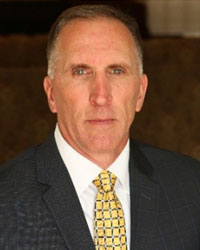
Scott A. Vander Hamm is a Vice President and Corporate Lead Executive for Northrop Grumman’s Midwest regional office based in Bellevue, NE, representing all sectors and respective business activities. He reports to Charlie Lyon, Vice President Air Force programs, Northrop Grumman Corporation Government Relations, Falls Church, VA. As Vice President, Government Programs and Corporate Lead Executive, Vander Hamm responds to and represents Northrop Grumman to our customer base, and to our peer industry partners/competitors, and all other smaller business leaders in the region. The region includes US Strategic Command at Offutt Air Force Base, Nebraska, as well as Air Force Global Strike Command, Barksdale AFB, LA and other US Strategic Command components across the continental United States. Vander Hamm retired from the U.S. Air Force on December 1, 2017, after 32 years of service. His final assignment was Assistant Deputy Chief of Staff, Operations for Headquarters Air Force. He was promoted to major general in 2013. Scott earned degrees from Grand Canyon University in 1985 (B.A.), Northern Michigan University (M.A.), and Marine Corps University (M.S.). He attended Marine Command & Staff College, Quantico, VA in addition to a year as a Secretary of Defense Corporate Fellow with 3M Company, Saint Paul, MN.